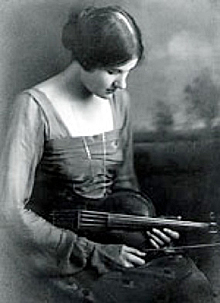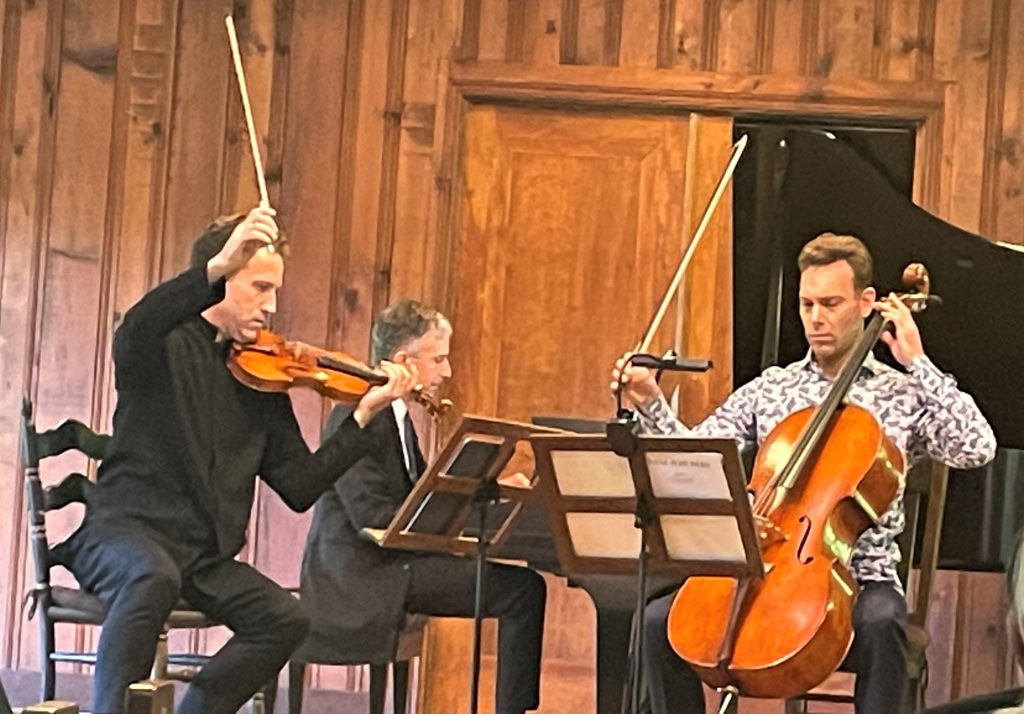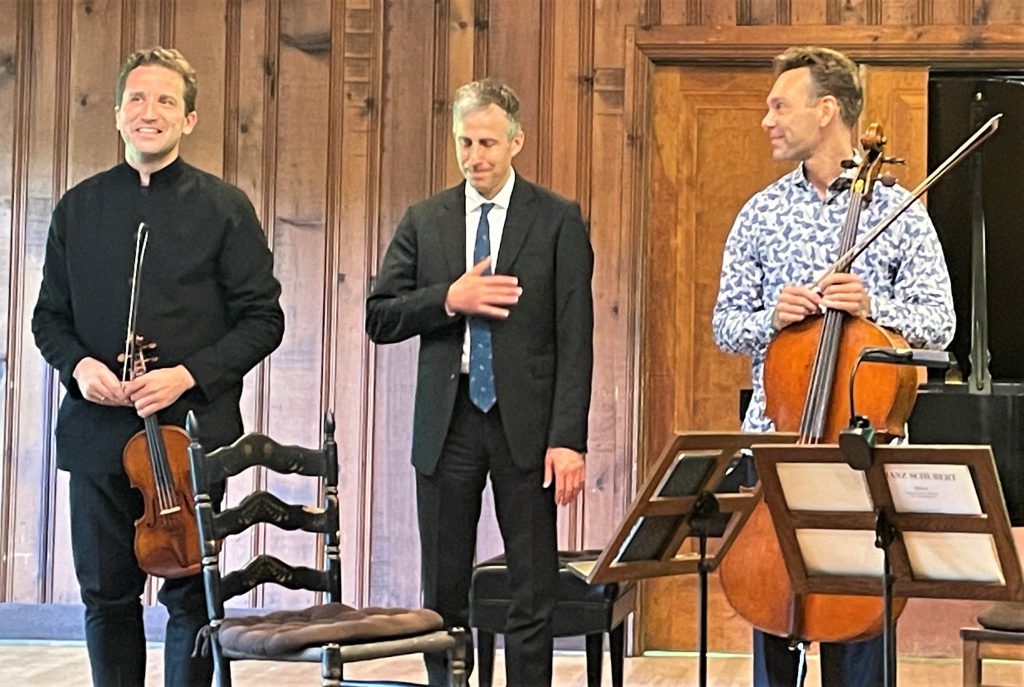
In Falls Village, CT, Music Mountain’s Season Opening Benefit Concert was introduced by Director Oskar Espina Ruiz. This was an unusual program designed by pianist Benjamin Hochman, world-renowned Steinway Artist, with violinist Benjamin Bowman, Concertmaster of the Metropolitan Opera, and Joel Noyes, cellist for the Metropolitan Opera. The concert’s theme was the infectious influence of Ludwig van Beethoven on subsequent composers.
They opened with Piano Trio in C Minor, Opus 1, No. 3 (1794-95), a work rarely played. Composed while Beethoven was studying under the genial tutoring of Franz Joseph Haydn, the work has remained controversial from the start. Beethoven performed the work at one of the Friday weekly musicales at the Prince Karl Lichnowsky household in Vienna. Haydn attended and spoke positively about Opus 1, No. 1 and Opus 1, No. 2, but objected to the possible publication of Opus 1, No.3. Consequently, the publication of these three trios was dedicated not to Haydn but to the host Lichnowsky. Haydn had assisted Beethoven’s development of form, yet balked at Beethoven’s expressive and energetic originality.
The first movement of Opus 1, No. 3 remains conventional in the vein of Mozart at his most conservative approach in sonata form with ascending scales and well-balanced structure; one might say that this part displays Beethoven as a good pupil, behaving well in polite society. The second movement lyrical rondo appears to ask too many questions that don’t have simple answers: the audience is challenged to think for themselves. The passionate third movement displays pianistic pyrotechnics with ambiguous rhythms and difficult string passages, especially for the violin. Heated personal emotion displaces polite conversation as Beethoven declares his singular, creative explosion, like a super-nova star. The finale gives one the feeling that Beethoven’s musical abilities are unbounded.
The trio performed with an astonishing close-knit unity which was infectious, as well as ruggedly explosive. It was as if Beethoven was resurrected, standing naked before the audience. Hochman’s fingers sounded as if they burning with emotion while Bowman forcefully enunciated cascades of 1/16th notes while straining not to fall from his chair. On cello, Noyes was more solemn, yet he bowed with such stern and biting resonance that it was clear he owned the foundation which supported both instruments that soared above him. The audience exploded with vociferous applause and demanded a second bow!

They then played Piano Trio (1921) by Rebecca Clarke (1886-1979), a noted female viola player and composer born in England to an American father and German mother. Under the pseudonym of “Anthony Trent” this piano trio garnered second place at the Berkshire Music Festival in Pittsfield, Mass. Today, this nearly forgotten trio has been recently re-evaluated and acclaimed as an overlooked masterpiece. (Some of her compositions have never been published.)
For its time, this work sounds quite modern to the ear. The cheerful, romantic first-movement opening invokes considerable yet moderate passion, while the second movement appears to ask many questions, perhaps about love and commitment. (Her father had been a notorious womanizer, throwing Rebecca out of their home and disowning her because she criticized his many affairs.) The series of unconventional questions in the second movement appears to have been influenced by Beethoven, yet they are her distinctive feminine, captivating voice. These questions are likely addressed to her father.

The vigorous third movement with ambiguous rhythms is likely to have been inspired by Beethoven’s third movement of Opus 1, No. 3. Clarke appears, like Beethoven, to be declaring her own singular identity with serious, independent passion. I had not known of this work and was grateful for its current resurrection which may inspire further appreciation of her work which was performed ardently by three men with such affectionate sincerity.

After intermission, the trio performed Piano Trio in E-flat Major, Op. 100, D.929 by Franz Schubert (1797-1828). The trio began in November of 1827, six months after the death of Beethoven, and subsequently published one year later from the month of Schubert’s death. The death of the “God of Music” (Beethoven’s nickname in contemporary China) had a profound effect on Schubert.
The first movement has many lyrical repetitions, however sweet the tunes. I take this repetition to be a somewhat labored, ironic satire on ordinary polite social conversation, yet there are other interpretations, like an endorsement of charming social discourse at an elite gathering. In any case, the first movement parallels the drama of average expectations for social conformity, as in the first movement of Beethoven’s Opus 1, No. 3.
The processional piano’s opening in the second movement presents a funereal recollection of Beethoven’s death with a reference to Beethoven’s Eroica. The third movement boisterously celebrates the tremendous achievement of Beethoven, employing subtle echoes of various compositions of Beethoven. While this movement alludes to Beethoven, Schubert’s musical language is his crowning achievement. Once more the unity of the performing trio offered near-symphonic quality for the astonishing finale from a small, eloquent trio playing in amazing form as they paid homage to both Beethoven and Schubert with galvanized joy!
The audience demanded three bows…. This was an incredible and marvelous concert that opened a new season of classical concerts at Music Mountain where the echoes of Hochman, Bowman, and Noyes are still ringing in my ears.

Next Sunday features the Baldouret Quartet with Oskar Espina Ruiz on clarinet. The program: Mozart, String Quartet in D Minor, K. 421; “Haydn” Anna Weesner, The Eight Lost Songs of Orlando Underground for clarinet quintet; Beethoven, String Quartet in F Minor, Op. 59, No. 1.
There is also a free family concert at 2 pm.